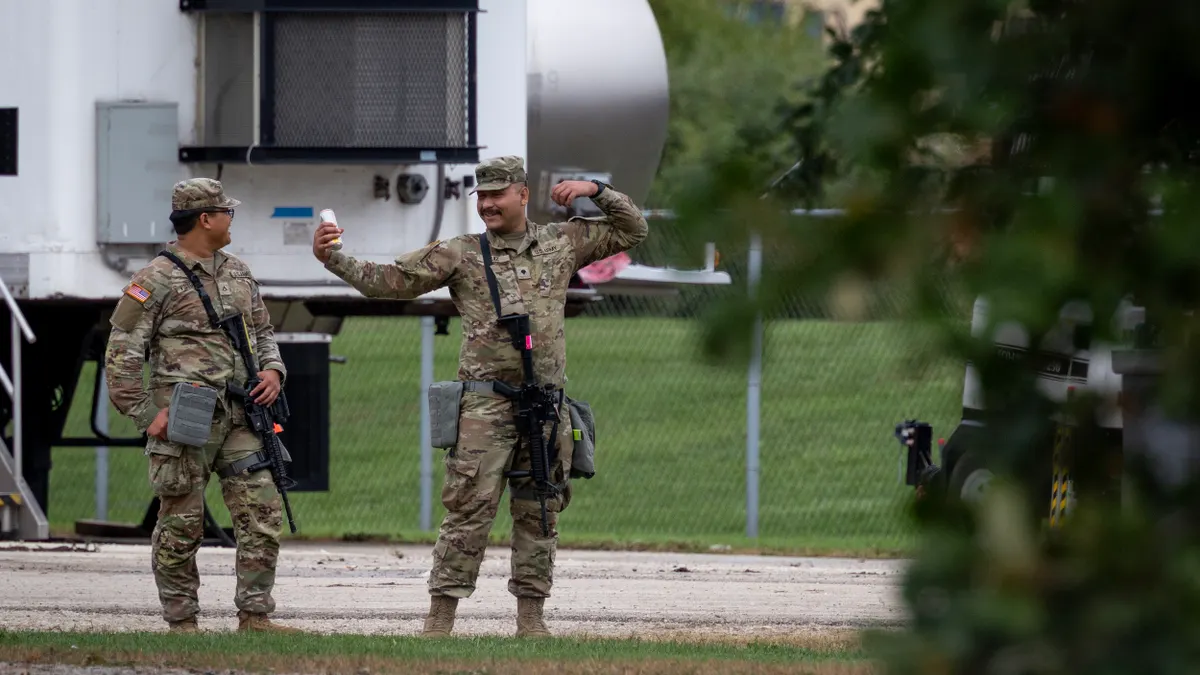Pasquale (Pat) Tamburrino Jr. is the COO of NobleReach Foundation.
Local government is the front line of public service. Though they play a crucial role connecting communities with essential support, state and local agencies are often chronically under resourced, especially when it comes to supporting tech talent.
At the local level, there is a pressing need for dedicated and talented young professionals that can apply skills in areas like cyber, AI and business to drive more efficiency in government and communities.
The good news for local government is that there’s great interest in mission-oriented work. According to a Deloitte report, 89% of millennials and 86% of Gen Z expressed desire for a sense of purpose in their job.
We’ve seen it within our own programs as well, with more than 1,200 tech and business graduates applying to be placed in yearlong public service roles via our 2025 NobleReach Scholars cohort.
It’s clear the challenge isn’t interest. Young professionals with skills in key areas like cyber, AI and business are driven by the opportunity to make an impact, but the sometimes-unclear path to government employment can act as a barrier, limiting government access to sought-after technical expertise.
This challenge doesn’t need to be accepted, nor is it an insurmountable roadblock. We can bring these highly skilled young people into public service by giving students access to the skill sets necessary to thrive in local government roles, lighting a path to public service careers and supporting the development of mission-driven leaders across the public and private sectors.
From school to public service
While universities do an excellent job preparing students for private sector work, the realities of launching a career in public service — especially at the state and local level — are rarely discussed. A curriculum tailored for public sector challenges can expose students to the skills they’ll need to thrive and will encourage them to consider government work as they envision their future career path.
Experiential learning, real-world applications and an opportunity to examine government problems in the classroom are essential. However, as in many fields, learning should take place not just on paper but also in the real world.
Hands-on experiences in local government departments can encourage students to pursue public sector roles after graduation. Weaving in real-world learning allows students to contribute to local cities and communities, preparing them for the dynamic nature of government work and sparking interest in public service.
Creating pathways to local government work
Armed with an education that prepares students for public service, the route to these roles is still different from the corporate world. Creating an effective and efficient path to the public sector can increase the number of graduates and young professionals launching their careers in city and county governments.
Access to a community of like-minded peers and continued professional development opportunities, exposure to cutting-edge government challenges and engaged public sector mentors can make young professionals’ first public service roles exceptional experiences.
While emerging talent can seek these opportunities on their own, initiatives that organize these relationships and experiences can help. The NobleReach Scholars Program is one example of a mechanism to enter public service. Through an immersive bootcamp, hands-on experience and an opportunity to connect with senior policy leaders, the program is designed to enable young talent to solve the most pressing challenges of our time.
Creating ‘dual citizens’ of the public and private sectors
Local government leaders are responsible for addressing complex challenges that can impact their communities every day, from cybersecurity threats to community safety and response to natural disasters. These issues require collaboration, partnership and ingenuity and benefit greatly from innovative technology.
Private sector entrepreneurs and changemakers are advancing areas like artificial intelligence and cybersecurity, which can act as the key to addressing these challenges. Therefore, we need leaders and technologists with an understanding of both the public and private sectors who can apply their discoveries to local government problems.
These “dual citizens” can effectively communicate across sectors and build trust that transcends each individual role. These qualities are acquired by learning the culture of the public and private sector, the unique challenges working in each domain brings and the nuances of government decision making. Through partnerships and pathways that encourage public service, we can help support and develop these individuals.
At the front lines of the public sector, local government plays a crucial role in keeping our communities strong. Their ability to fulfill this role depends on having the right people to solve local government challenges. Tapping into new talent interested in mission-oriented work to support the betterment of our local communities all starts with creating a clear road to public service.
Commentary is a space for state and local government leaders to share best practices that provide value to their peers. Email Smart Cities Dive to submit a piece for consideration and view past commentaries here.








